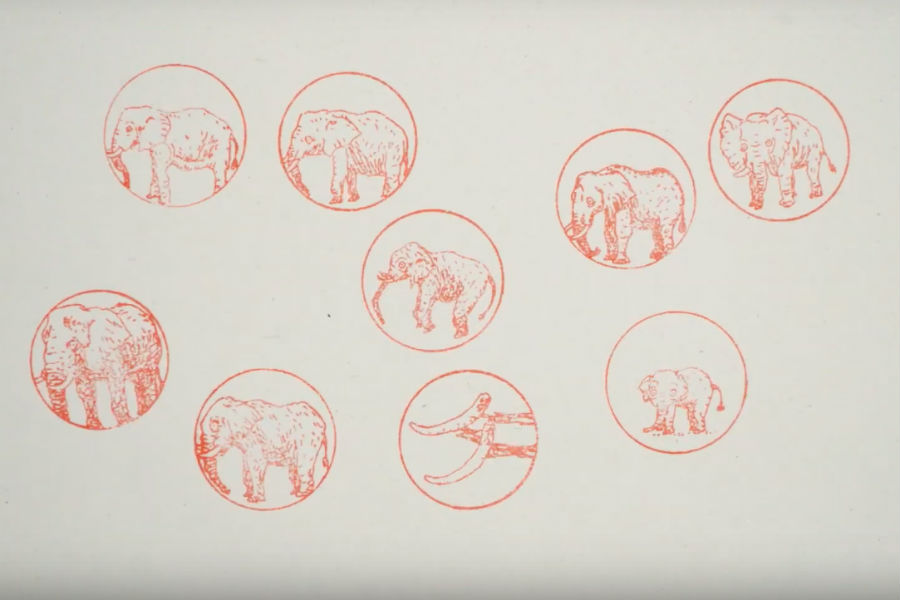Chinese consumption habits are frequently singled out for threatening the survival of animal species, with good reason. But the country is far from the only culprit. Indeed, while China has banned the ivory trade, it is alive and well in Japan, where domestic sales are reportedly the highest in the world.
According to a new film designed to raise awareness of the problem among Japanese people, 80% of the ivory sold in the market is used for hanko—small stamps that people use in place of a signature on official documents. In a media release, Masanori Tagaya, group creative director of Grey Tokyo, which developed the work, said most Japanese people are unaware that Japan is a major ivory consumer or even that African elephants are endangered.
The film, dubbed ‘Hankograph’, was produced on behalf of two non-profits, WildAid Japan and Tears of the African Elephant, to mark Earth Day 2019 (22 April). It features animation by the artist Koji Yamamura created entirely from hanko stamps that depicts the cycle of consumption: an elephant comes into view and gets shot by a poacher, who hacks off its tusks, which make their way from Africa to Japan, where they are converted into stamps.
The message is that these stamps can easily be made from sustainable materials. The film ends by noting that the 500 hankos used in its production were made of wood rather than ivory.
The work extends to newspapers and billboards in major traffic spots in Tokyo. In a media release, Peter Knights, chief executive of WildAid, said he hoped Japan could “join the global community in ending legal sales of ivory as soon as possible”.
Campaign’s view: The message is simple and powerful, and the craft is admirable. Of course, non-Japanese viewers have every right to wonder why hanko—even wooden ones—need to be used at all, but that is a topic for another time. Assuming this work gets enough exposure, it should go some way to raising awareness of a critically important issue. Like all charity advertising work, how effective it will be for the cause (as opposed to simply helping the agency win awards) is up for debate.
Educating the public is one thing. But in order for things to really change, pressure must be put on the authorities to outlaw ivory sales completely. In China, interest in ivory products was shown to decrease significantly following the ban.









